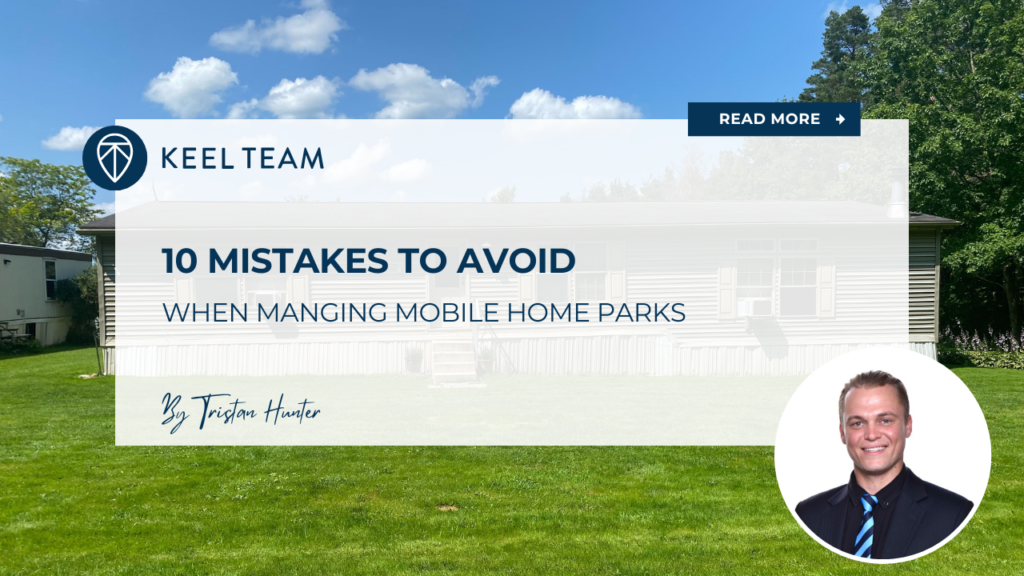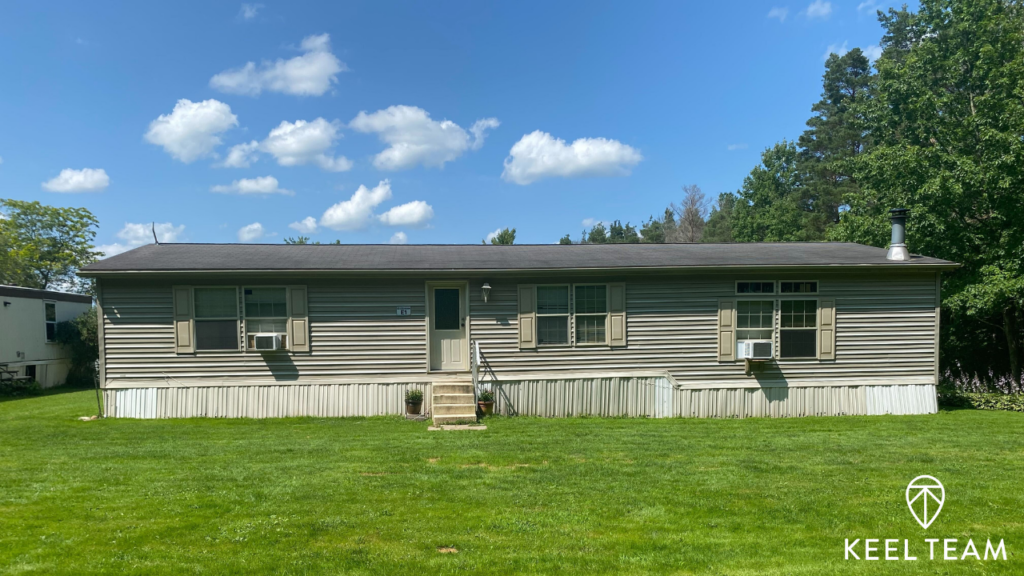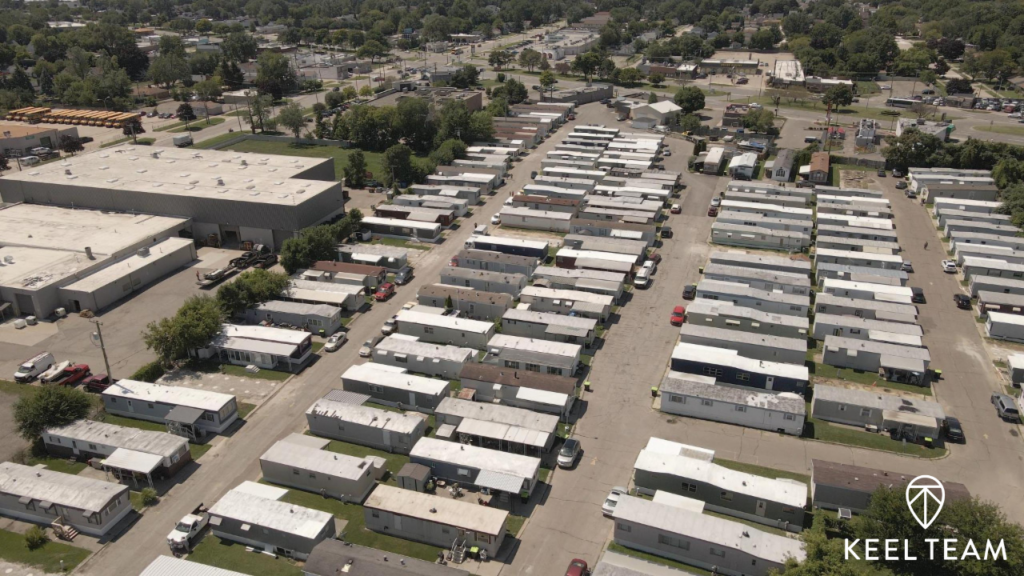10 Mistakes to Avoid When Managing Mobile Home Parks
-
 Tristan Hunter - Investor Relations
Tristan Hunter - Investor Relations

Managing mobile home parks generally comes with several challenges, and avoiding key mistakes can help ensure smoother operations. While no approach guarantees success, staying mindful of these ten common pitfalls when managing mobile home parks may improve profitability potential and tenant satisfaction.
1. Poor Tenant Communication
Effective tenant communication can prevent small issues from becoming major conflicts. If tenants feel ignored, misunderstandings and dissatisfaction may develop, impacting retention.
- Keep Tenants Informed: Provide updates on maintenance, rule changes, and other important matters through email, newsletters, or notice boards.
- Encourage Feedback: Tenants should feel comfortable reporting issues or offering suggestions. This engagement may help identify problems early.
- Respond Promptly: Quick responses to tenant inquiries can build trust and foster a positive relationship.
Good communication helps create a harmonious environment that encourages long-term tenancy.
2. Deferred Maintenance
Postponing maintenance tasks might result in higher costs and unhappy tenants. Addressing maintenance needs early keeps the property in good condition and reduces future expenses.
- Schedule Inspections: Plan regular checks to catch minor issues before they grow into larger problems.
- Develop a Maintenance Budget: Allocate funds for ongoing repairs and emergency situations.
- Use a Preventive Maintenance Plan: Stay ahead of repairs by maintaining infrastructure before problems arise.
Timely maintenance could save money and ensure tenant satisfaction.
Download our FREE eBook on the Top 20 things to know BEFORE investing in mobile home parks!
3. Weak Marketing Strategy
Underestimating the importance of marketing might result in extended vacancies and missed income opportunities. Good marketing makes the mobile home park more visible to potential tenants.
- Advertise Online: List available units on housing websites and social media platforms.
- Use Signage: Place signs around the local area, offering move-in specials to attract residents.
- Leverage Word-of-mouth: Encourage happy tenants to refer friends, possibly with incentives like rent discounts.
A strong marketing strategy helps attract tenants, ultimately reducing vacancy rates.
4. Underestimating Operational Costs
Many new managers often overlook hidden or fluctuating expenses, leading to cash flow issues. Unexpected costs can quickly cut into profits if not carefully tracked.
- Monitor Utility Costs: Water, electricity, and other utilities can add up quickly. Consider introducing a bill-back program for water and sewer.
- Plan for Vacancies: Budget with vacancy periods in mind to avoid disruptions.
- Build a Reserve Fund: Set aside a portion of income for unforeseen repairs or emergencies.
By keeping a close watch on expenses, you can likely manage operations more sustainably.
5. Neglecting Compliance and Legal Regulations
Mobile home parks are subject to various safety codes and local regulations. Non-compliance could result in fines, lawsuits, or even forced closure.
- Stay Up to Date with Laws: Keep track of zoning laws, tenant rights, and safety regulations.
- Conduct Regular Audits: Ensure the property meets health and safety standards.
- Document Everything: Maintain records of inspections, permits, and licenses to avoid legal trouble.
Staying compliant helps build trust with tenants and likely reduces legal risks.

6. Ignoring Tenant Screening Processes
Skipping thorough tenant screening might lead to problematic renters, resulting in conflicts or unpaid rent. Careful tenant selection could avoid issues down the line.
- Run Background Checks: Verify applicants’ rental history and financial stability.
- Request References: Reach out to previous landlords to assess tenant behavior.
- Be Transparent with Rules: Explain all rules and policies clearly before the lease is signed.
Effective tenant screening helps create a more stable community.
7. Failing to Offer Incentives for Tenant Retention
Many managers focus on acquiring new tenants but neglect efforts to retain current ones. Happy tenants are more likely to stay, reducing turnover.
- Offer Lease Renewal Discounts: Incentives like rent freezes or small discounts can encourage long-term leases.
- Host Community Events: Social events help create a sense of belonging among tenants.
- Reward Referrals: Offer bonuses or rent discounts for tenants who refer new residents.
Fostering a community environment may increase tenant satisfaction and retention.
8. Not Addressing Conflict Early
Conflicts between tenants or management may escalate if left unaddressed. Dealing with disputes quickly helps maintain a peaceful environment.
- Have Clear Rules: Well-defined rules reduce ambiguity and prevent conflicts.
- Mediate When Needed: Step in early to resolve disputes before they escalate.
- Maintain Open Communication: Encourage tenants to voice concerns so they can be addressed quickly.
Proactive conflict resolution may prevent disruptions and build community trust.

9. Neglecting the Infrastructure
The overall infrastructure of the mobile home park, including roads, utilities, and landscaping, directly impacts tenant satisfaction. Neglecting these areas might result in complaints or costly repairs.
- Inspect Roads and Utilities: Regularly assess the condition of shared amenities.
- Improve Landscaping: Well-maintained greenery can enhance the appeal of the community.
- Upgrade Outdated Systems: Invest in infrastructure improvements as needed to keep tenants happy.
Keeping infrastructure in good shape could improve the quality of life for tenants and increase occupancy.
10. Overcomplicating Management Processes
Complex management processes may lead to inefficiencies and confusion among staff or tenants. Streamlining operations helps save time and ensures smoother day-to-day management.
- Use Management Software: Property management tools can simplify tasks like rent collection and maintenance tracking.
- Standardize Procedures: Create clear workflows for staff to follow.
- Keep Rules Simple: Avoid overly complicated rules that could confuse tenants.
Efficient processes usually make it easier to manage operations and improve tenant satisfaction.
Conclusion
Managing mobile home parks involves a lot of moving parts, and avoiding these common mistakes might help ensure better operations. Clear communication, proactive maintenance, effective marketing, and careful financial planning are essential elements of good management. By staying compliant, screening tenants thoroughly, and focusing on retention, you can foster a thriving community. Additionally, resolving conflicts early, maintaining infrastructure, and simplifying processes may further streamline operations. Although no strategy guarantees success, thoughtful management could enhance tenant satisfaction and improve the profitability of your mobile home park over time.
Are you looking for MORE information? Book a 1-on-1 consultation with Andrew Keel to discuss:
- A mobile home park deal review
- Due diligence questions
- How to raise capital from investors
- Mistakes to avoid, and more!
Disclaimer:
The information provided is for informational purposes only and is not investment advice or a guarantee of any kind. We do not guarantee profitability. Make investment decisions based on your own research and consult registered financial and legal professionals. We are not registered financial or legal professionals and do not provide personalized investment recommendations.

Tristan Hunter - Investor Relations
View The Previous or Next Post
Subscribe Below 👇





